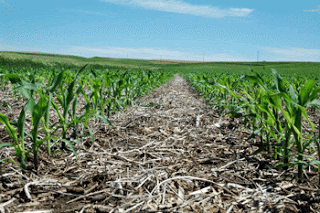Organic advocates are wealthy so they only argue that emissions would decrease, but that ignores the extra land that would be needed. If the whole world switched to organic farming, a billion would starve in places where the land is not viable without science, and the rest would see new farmland equivalent to the entire country of India go under the plow to grow enough. Though organic industry trade groups insist their manufacturing process is better for the environment, scientists know older pesticides were replaced by newer ones because they are far less effective.
Proponents insist their process can lead to 4 percent fewer emissions for livestock and in one crop 20 percent lower greenhouse gases, but those gains are oddset by the dramatically lower yields - which requires increased land with a far less efficient farming process. Greenhouse gas emissions under a 100 percent organic farming production method would increase by 21 percent over conventional farming baselines - even if only half of extra overseas land was converted from grassland. It would go up 170 percent if the Carbon Opportunity Cost is added in.

Dr. Adrian Williams, Reader in Agri-Environmental Systems at Cranfield University says, “We predict a drop in total food production of 40% under a fully organic farming regime, compared to conventional farming, if we keep to the same national diet. This results from lower crop yields, because yields are restricted by a lower supply of nitrogen, which is mainly from grass-legume leys within crop rotations or manure from cattle on pasture.”
Assessing the need for imports to make up the shortfall, and assuming that food diets and demands stay the same, the academic team estimates that the overseas land area needed to be changed to food production for England and Wales would increase by a factor of five. This additional land would likely be of sub-optimal quality and therefore not as productive as higher-quality land.
Dr. Laurence Smith says, “Although resource use can be improved under organic management, there is a need to consider the potential effect on land-use. Under a 100% organic scenario in England and Wales, a net-reduction in greenhouse gases would only be achievable if accompanied by a major increase in organic yields or widespread changes to national diets.”





Comments